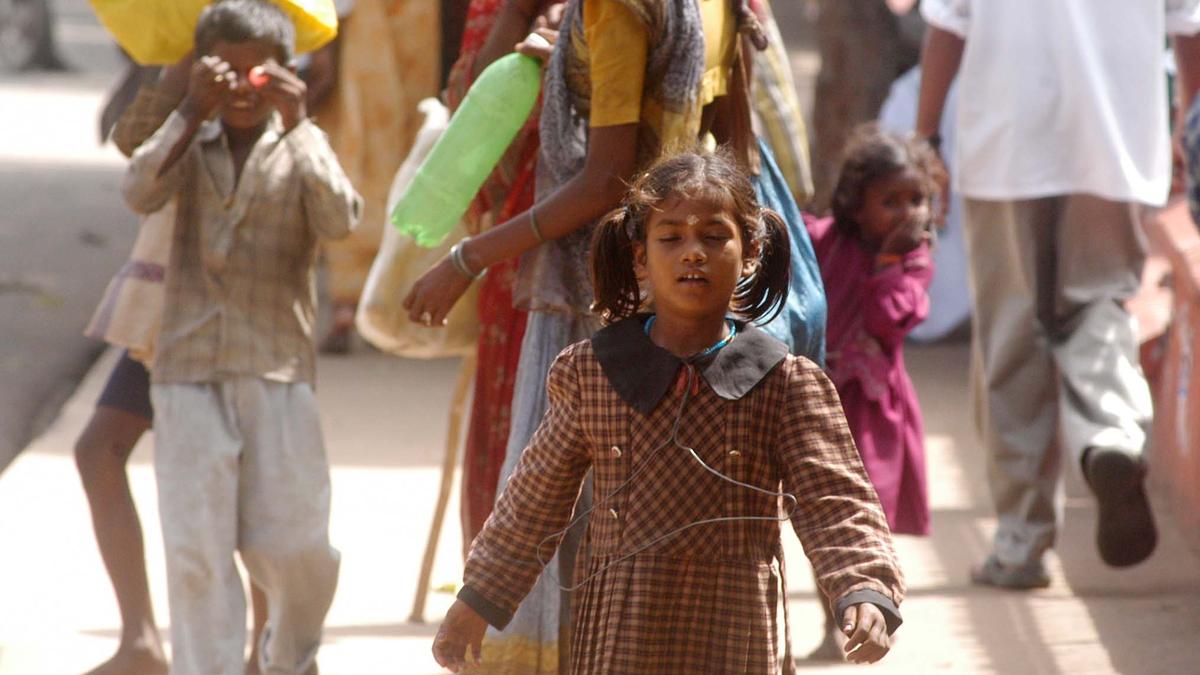
Migrant children in Kerala without documents being denied school enrolment in violation of RTE Act
The Hindu
Migrant children in Kerala without documents being denied school enrolment in violation of RTE Act
Notwithstanding the clear mandate in the Right to Education (RTE) Act making education of children in the age group of 6 to 14 years an inviolable right, predicating school enrolment on documents, chiefly Aadhaar card, has emerged as a major hurdle in the academic future of migrant children in Kerala.
Previously, a mere approval from the head of the school concerned was enough for enrolment. But now, the parent’s proof of identification and birth certificate of the child have been made mandatory, leaving the migrant community in a fix.
“Deliveries at home remain a common practice in many places from where the majority of the migrants come from, making registration of births at best patchy. Even in cases where births are registered, not many would have collected the birth certificates, being hardly aware of its significance. And in cases where birth certificates are available, some would have left it back home and a trip back just to fetch the document is not feasible for most migrants,” says Benoy Peter, executive director, Centre for Migration and Inclusive Development (CMID) at Perumbavoor.
He says Aadhaar enrolment based on documents has been made stringent probably to prevent it as a ruse to authenticate undocumented migration. But then, documentation is the responsibility of the system and should not be used to deny children their right to education, which remains the best long-term investment to the world of opportunities, he adds.
Samagra Shiksha Kerala (SSK) has admitted that it is indeed a crisis and that the matter has been brought to the notice of the General Education department for a liberal approach to resolve it. “However, these children are being allowed to attend classes in schools and are also given training in basic skills through our special training centres in migrant-intense areas with the help of education volunteers,” says Joseph Varghese, programme officer, SSK Ernakulam.
The issue has become all the more critical with the traditional headcount on the sixth working day of the academic year being replaced by verifying the actual student count based on Aadhaar cards for determining teacher’s posts. This has effectively put paid to the system of fictitious enrolment claimed by schools just to make up the numbers to prevent division falls for saving teaching jobs.
“While we continue to give admission to these students, those without Aadhaar cards will not be counted, thus affecting the number of divisions and teacher posts. Packing them into a single division would affect quality of teaching as well. Aadhaar-authenticated admissions would facilitate a more judicious distribution among divisions with adequate teachers,” says Asha Mathew, headmistress, Government Upper Primary School at Kandanthara in Perumbavoor, which has a considerable migrant population.

After a long, tiring day all we want is to jump right on our cosy beds and rest comfortably on our soft, fluffy pillows, right? Pillows are not quite appreciated as much as electric cars or air-fryers, for instance. Pillows are a wonderful man-made creation that has improved the lives and sleep of people across the globe. Did you know ages ago people used to rest their heads on a HARD ROCK? So how did humans go from sleeping on stones to cosy, fluffy and soft pillows today? Let’s get into the origin of your everyday pillows!

As the November 30 deadline nears for installing vehicle location tracking devices (VLTD) and emergency panic buttons in public service and nationally permitted goods vehicles in Karnataka, transport unions representing cab, bus, and truck operators are urging the government to reconsider the mandate. They argue that the high cost of these devices and a lack of awareness have made it difficult for many vehicle owners to comply with the requirement.









